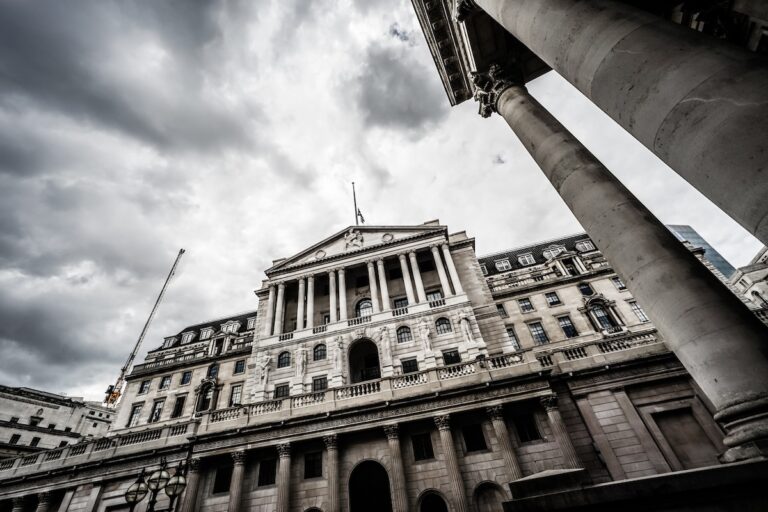The Bank of England’s decision to maintain its key interest rate at 5.25% has sparked a range of perspectives and reactions from financial experts and industry leaders. George Lagarias, Chief Economist at Mazars, observes the ongoing struggle within the Bank, highlighting the challenges of a stagnant UK economy and the delicate balancing act faced by its board members. Michael McGowan, Managing Director of Foreign Exchange at Bibby Financial Services, notes the impact on businesses, particularly SMEs, and the potential consequences of exchange rate fluctuations. Meanwhile, Mike Randall, CEO of Simply Asset Finance, stresses the resilience of small businesses in the face of adversity and calls for greater support and solutions to ensure their continued growth in the coming year. As the Bank’s stance on interest rates becomes clear, the implications for the UK’s economic landscape and the role of government and financial institutions in assisting SMEs come into sharper focus.
George Lagarias, Chief Economist at Mazars comments: “Another day, another pause and another fight at the BoE. As expected, the UK central bank retained its key interest rate for the second time in a row,  mirroring the Fed’s decision yesterday. It is clear that the Bank’s board members are looking outside the window at an economy that has barely grown in the past year. Unlike the US, the holder of the world’s reserve currency, the UK can’t fiscally support its economy without risking a backlash in the bond market, similar to last September’s. Further hiking would risk tipping a barely growing economy into a recession. External members seem to disagree, possibly adhering to stricter economic dogma. However, the Bank’s intention is now clear, and the scale has been tipped for growth rather than for controlling inflation.”
mirroring the Fed’s decision yesterday. It is clear that the Bank’s board members are looking outside the window at an economy that has barely grown in the past year. Unlike the US, the holder of the world’s reserve currency, the UK can’t fiscally support its economy without risking a backlash in the bond market, similar to last September’s. Further hiking would risk tipping a barely growing economy into a recession. External members seem to disagree, possibly adhering to stricter economic dogma. However, the Bank’s intention is now clear, and the scale has been tipped for growth rather than for controlling inflation.”
Michael McGowan, Managing Director, Foreign Exchange, Bibby Financial Services, Comments “After September marked the first pause in a brutally long run of rate rises, it’s come as no surprise that the Bank of England held the interest rate steady again today – especially after this week’s fall in food price  inflation. Businesses may dare to hope the summit has been reached and hikes are at an end.
inflation. Businesses may dare to hope the summit has been reached and hikes are at an end.
Yet a rate of 5.25 per cent is no walk in the park for businesses – and SMEs, who rely most on external finance, will be feeling the pinch hardest. What’s more, for the 53% of UK SMEs that import and/or export across borders, the rate pause has already sent the pound tumbling against the dollar and the euro, which represents a potential a blow to profitability.
It’s critical then that SMEs –– the backbone of the UK economy – closely monitor their foreign currency needs while fluctuations persist, to mitigate the risks of a weaker pound and current volatility.”
Mike Randall, CEO of Simply Asset Finance says, “A steadying of interest rates will undoubtably relieve some pressure for small businesses, but there are still fundamental problems to be solved if they are to thrive in the coming year.”
 “These are firms that have remained unwaveringly resilient in the past few years, facing stubborn inflation, some of the highest interest rates on record, persistently high energy costs and ongoing supply chain issues. Yet support available to small firms – which represent 99% of UK business – has still remained limited, and in some cases has been cut back in recent months.
“These are firms that have remained unwaveringly resilient in the past few years, facing stubborn inflation, some of the highest interest rates on record, persistently high energy costs and ongoing supply chain issues. Yet support available to small firms – which represent 99% of UK business – has still remained limited, and in some cases has been cut back in recent months.
“Recently announced government commitments, such as the Prompt Payment & Cash Flow Review, are certainly a step in the right direction, but the job is far from complete and all eyes will be on the chancellor’s Autumn statement next month. Despite the odds often being stacked against them, we are continuing to see SMEs investing in their growth as they know business must go on. But to ensure they can effectively pursue that journey to growth, it will be the responsibility of the financial industry and the government alike to help clear the path of any obstacles, and give business leaders the confidence they need to feel empowered.”

